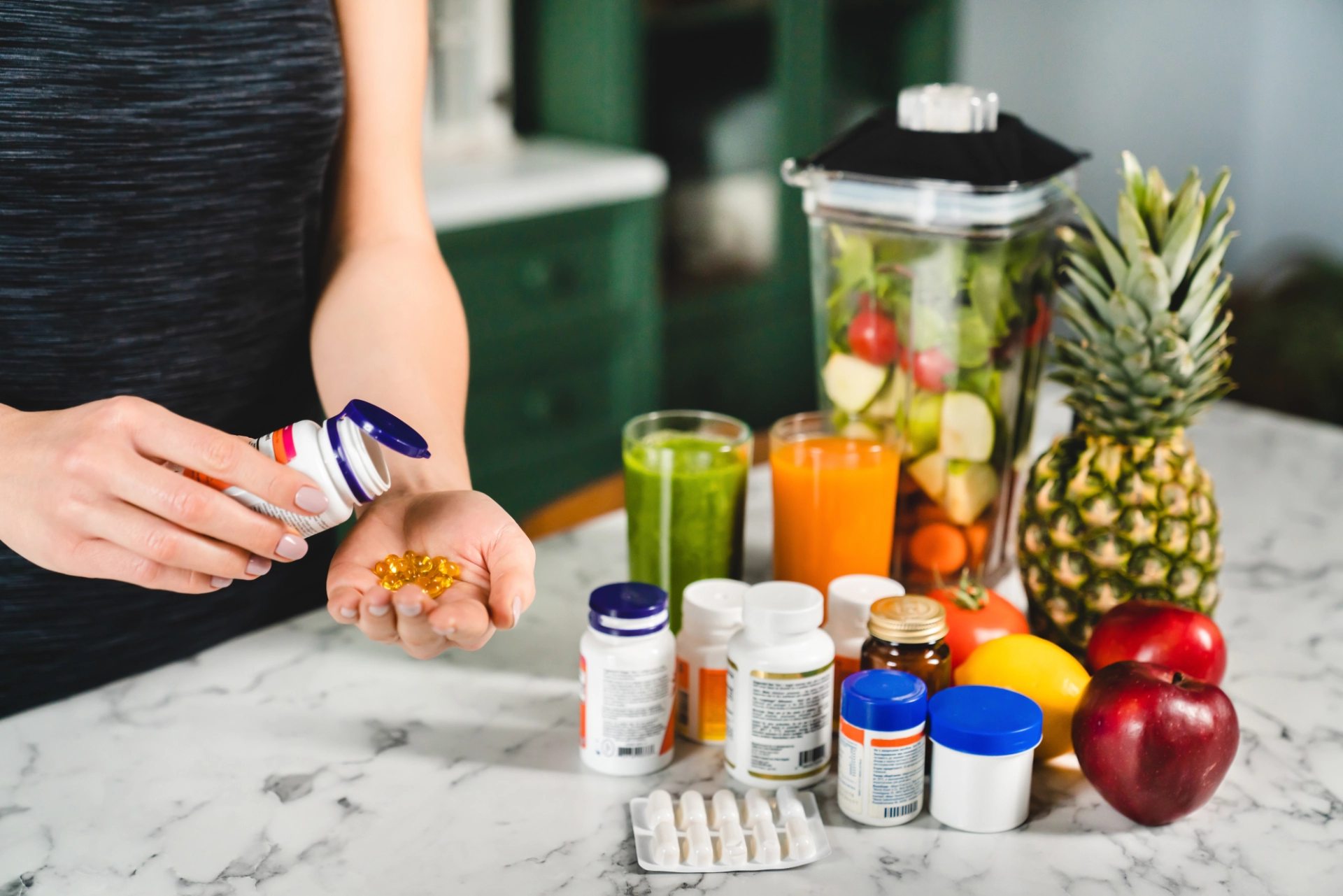Written by Dr. Brandon Rieders, Gastroenterologist
Gut health plays a critical role in overall well-being, influencing digestion, immunity, and even mental health. While diet and lifestyle are foundational, vitamins can provide targeted support for maintaining a healthy gut. In this guide, we’ll explore the essential vitamins that support gut health, their natural sources, and how they work together for digestive relief and wellness.
Why Gut Health Matters
The gut is a central hub for many bodily functions, thanks to its complex microbiome and interconnected systems.
Functions of the Gut Microbiome
- Digestion and Nutrient Absorption: The gut breaks down food and ensures nutrients are absorbed efficiently.
- Immune System Support: A significant portion of the immune system resides in the gut, helping fend off harmful pathogens.
- Mental Health Connection: The gut-brain axis links gut health to mood and cognitive function.
Common Signs of Poor Gut Health
- Persistent bloating.
- Irregular digestion.
- Fatigue or low energy levels.
Key Vitamins for Gut Health
Vitamin D: Vitamin D strengthens the gut barrier, reducing permeability and enhancing digestion. It also has anti-inflammatory properties and supports immunity, which is crucial for gut health. Natural sources include fatty fish, fortified foods, and egg yolks.
Vitamin A: This vitamin maintains the integrity of the gut lining, ensuring a strong barrier against harmful substances. It also plays a role in immunity by helping the body combat infections. Found in sweet potatoes, carrots, and spinach, Vitamin A works synergistically with other antioxidants, such as those in ginger and fennel, to reduce inflammation.
B Vitamins (B1, B2, B6, B12): These vitamins are vital for energy production and digestion. They aid the enzymatic processes that break down food and convert nutrients into energy. Natural sources include whole grains, meat, eggs, and legumes. In Happitum™, digestive enzymes paired with B vitamins optimize nutrient absorption and relieve discomfort.
Vitamin C: As a powerful antioxidant, Vitamin C reduces oxidative stress and promotes the healing of the gut lining. This is especially important for individuals with inflammation or digestive distress. You can find Vitamin C in citrus fruits, bell peppers, and strawberries, or complement it with soothing ingredients like marshmallow root and slippery elm for enhanced relief.
Vitamin E: Vitamin E protects gut cells from damage caused by free radicals. Found in nuts, seeds, and avocados, it supports the overall health of the digestive system and complements the anti-inflammatory effects of curcumin and ashwagandha in Happitum™.
How Vitamins Work Together for Gut Health
Vitamins don’t work in isolation—they interact with each other and other nutrients to enhance their effects. For instance:
- Vitamin A and Vitamin C collaborate to repair the gut lining and combat inflammation.
- B Vitamins aid the enzymatic breakdown of food, which is further supported by digestive enzymes.
- Vitamin D and E provide anti-inflammatory and protective effects, reducing discomfort and supporting long-term gut health.
Supplementing Vitamins for Gut Health
While a balanced diet is the best source of vitamins, supplementation can be beneficial when:
- Your diet lacks variety.
- You experience chronic digestive issues.
- You need targeted support for deficiencies.
Choosing Quality Supplements
- Look for supplements with natural, bioavailable forms of vitamins.
- Consider formulas like Happitum™ that combine vitamins with herbal ingredients for synergistic effects.
- Avoid supplements with unnecessary fillers or artificial additives.
Tips for Improving Gut Health Naturally
- Incorporate Vitamin-Rich Foods: Include a variety of colorful fruits, vegetables, and whole foods in your diet.
- Practice Mindful Eating: Chew food thoroughly and eat slowly to aid digestion.
- Stay Hydrated: Water supports digestive processes and overall gut function.
- Manage Stress: Techniques like meditation or deep breathing can reduce stress-related gut issues.
- Avoid Processed Foods: Limit intake of high-sugar and heavily processed items, which can disrupt gut health.
When to Seek Professional Advice
Persistent digestive issues or signs of vitamin deficiencies, such as fatigue or hair loss, warrant consultation with a healthcare provider or nutritionist. They can help identify underlying issues and recommend tailored solutions.
A well-balanced diet enriched with essential vitamins can significantly improve gut health and overall wellness. Incorporate these nutrients into your routine alongside natural supplements like Happitum™, which combines ingredients such as ginger, fennel, and curcumin for effective digestive relief and support. Small, consistent changes can lead to lasting improvements in how you feel every day.
References
- Martinsen, T. C., et al. (2019). Digestive Enzymes and Vitamin Absorption. Journal of Gastroenterology, 54(3), 240-247.
- Lopresti, A. L., et al. (2019). Synergistic Effects of Vitamins and Herbal Compounds on Gut Health. Clinical Nutrition, 39(1), 85-92.
- Sharma, A., et al. (2015). Anti-Inflammatory Properties of Ginger and Vitamin A in Gut Health. Digestive Health Research, 38(4), 310-316.
- Badary, O. A., et al. (2018). Vitamin E and Antioxidant Protection for the Gut. World Journal of Gastrointestinal Pharmacology and Therapeutics, 9(3), 123-130.



